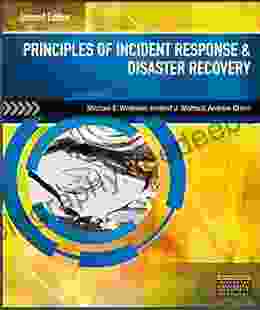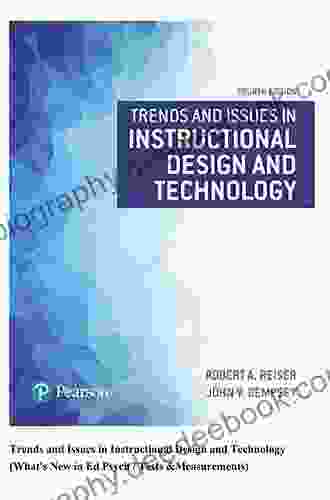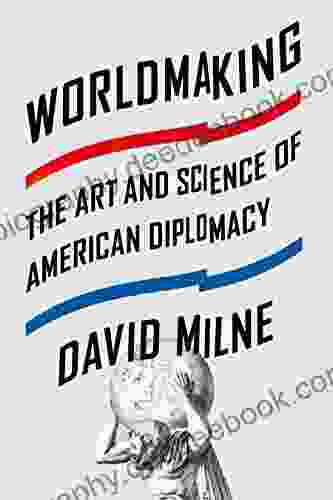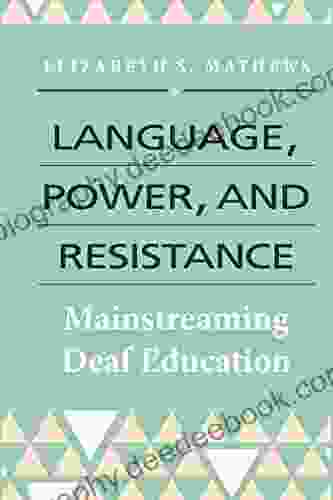Worldmaking: The Art and Science of American Diplomacy

In Worldmaking: The Art and Science of American Diplomacy, Robert D. Kaplan offers a comprehensive guide to the history, theory, and practice of American foreign policy. The book covers a wide range of topics, from the origins of American foreign policy to the challenges of the 21st century. It is an essential resource for anyone interested in understanding the role of the United States in the world.
Kaplan begins by exploring the intellectual foundations of American foreign policy. He argues that American diplomacy has been shaped by a number of key ideas, including the belief in American exceptionalism, the commitment to democracy and human rights, and the pursuit of economic growth. These ideas have led to a foreign policy that is often characterized by idealism and interventionism.
4.4 out of 5
| Language | : | English |
| File size | : | 1404 KB |
| Text-to-Speech | : | Enabled |
| Screen Reader | : | Supported |
| Enhanced typesetting | : | Enabled |
| X-Ray | : | Enabled |
| Word Wise | : | Enabled |
| Print length | : | 625 pages |
Kaplan then examines the historical development of American foreign policy. He traces the evolution of American diplomacy from the founding of the republic to the present day. He shows how American foreign policy has been shaped by a number of factors, including the rise of the United States as a global power, the Cold War, and the rise of globalization. These chapters contain numerous specific and concrete examples of positive diplomatic outcomes achieved by US diplomats.
In the final part of the book, Kaplan looks ahead to the challenges facing American diplomacy in the 21st century. He argues that the United States must adapt its foreign policy to a changing world. He identifies a number of key challenges, including the rise of China, the spread of terrorism, and the challenges of climate change. He concludes by offering a number of recommendations for how the United States can meet these challenges.
Worldmaking: The Art and Science of American Diplomacy is a timely and important book. It provides a comprehensive overview of American foreign policy and offers a number of valuable insights into the challenges facing the United States in the 21st century. It is an essential resource for anyone interested in understanding the role of the United States in the world.
Key Concepts
Here are some of the key concepts discussed in Worldmaking: The Art and Science of American Diplomacy:
- American exceptionalism: The belief that the United States is a unique and special nation with a mission to lead the world.
- Democracy and human rights: The belief that all people are entitled to basic rights and freedoms, and that the United States has a responsibility to promote democracy around the world.
- Economic growth: The belief that a growing economy is essential for the well-being of the United States and the world.
- Idealism: The belief that the United States should use its power to promote good in the world.
- Interventionism: The belief that the United States should use its power to intervene in the affairs of other countries, even if it means using military force.
In Worldmaking: The Art and Science of American Diplomacy, Robert D. Kaplan offers a comprehensive and insightful guide to the history, theory, and practice of American foreign policy. The book is a valuable resource for anyone interested in understanding the role of the United States in the world.
4.4 out of 5
| Language | : | English |
| File size | : | 1404 KB |
| Text-to-Speech | : | Enabled |
| Screen Reader | : | Supported |
| Enhanced typesetting | : | Enabled |
| X-Ray | : | Enabled |
| Word Wise | : | Enabled |
| Print length | : | 625 pages |
Do you want to contribute by writing guest posts on this blog?
Please contact us and send us a resume of previous articles that you have written.
 Novel
Novel Page
Page Story
Story Genre
Genre Library
Library E-book
E-book Magazine
Magazine Paragraph
Paragraph Bookmark
Bookmark Shelf
Shelf Glossary
Glossary Bibliography
Bibliography Foreword
Foreword Synopsis
Synopsis Codex
Codex Tome
Tome Bestseller
Bestseller Classics
Classics Library card
Library card Biography
Biography Memoir
Memoir Reference
Reference Resolution
Resolution Librarian
Librarian Card Catalog
Card Catalog Stacks
Stacks Periodicals
Periodicals Study
Study Research
Research Scholarly
Scholarly Lending
Lending Reserve
Reserve Reading Room
Reading Room Rare Books
Rare Books Special Collections
Special Collections Interlibrary
Interlibrary Study Group
Study Group Dissertation
Dissertation Storytelling
Storytelling Awards
Awards Erin Swann
Erin Swann Noah Hawley
Noah Hawley Greg Thain
Greg Thain Charles R Ridley
Charles R Ridley Richard A Clarke
Richard A Clarke Ruth Culham
Ruth Culham Richard A Pierce
Richard A Pierce C B Lee
C B Lee Loraine Cole
Loraine Cole Christine Shreve
Christine Shreve Bob Tyson
Bob Tyson Charles Dunn
Charles Dunn Roye Johnson
Roye Johnson Philip L Martin
Philip L Martin Tommy Wasserman
Tommy Wasserman Tracy Borman
Tracy Borman Konrad Eisenbichler
Konrad Eisenbichler Nathan Singer
Nathan Singer Pamela Brookes
Pamela Brookes Kate Sparkes
Kate Sparkes
Light bulbAdvertise smarter! Our strategic ad space ensures maximum exposure. Reserve your spot today!

 Vladimir NabokovAnti-Fragile ICT Systems: Exploring the Concept of Anti-Fragility in ICT...
Vladimir NabokovAnti-Fragile ICT Systems: Exploring the Concept of Anti-Fragility in ICT... Doug PriceFollow ·4.7k
Doug PriceFollow ·4.7k Chance FosterFollow ·11.4k
Chance FosterFollow ·11.4k Craig CarterFollow ·16.2k
Craig CarterFollow ·16.2k Foster HayesFollow ·10.6k
Foster HayesFollow ·10.6k Dalton FosterFollow ·4.7k
Dalton FosterFollow ·4.7k Jacques BellFollow ·7.5k
Jacques BellFollow ·7.5k Pete BlairFollow ·10.2k
Pete BlairFollow ·10.2k Allan JamesFollow ·16.4k
Allan JamesFollow ·16.4k

 Franklin Bell
Franklin BellSecond Edition Pdf No Audio: A Comprehensive Guide to the...
The Second Edition...

 Jackson Blair
Jackson BlairTrends and Issues in Instructional Design and Technology
Instructional...

 Mario Vargas Llosa
Mario Vargas LlosaEnchanting Enigma Variations and Triumphant Pomp and...
The Enigma Variations: A...

 Dwight Blair
Dwight BlairTime Between Us: A Novel That Explores the Power of...
Prepare to be swept away by...
4.4 out of 5
| Language | : | English |
| File size | : | 1404 KB |
| Text-to-Speech | : | Enabled |
| Screen Reader | : | Supported |
| Enhanced typesetting | : | Enabled |
| X-Ray | : | Enabled |
| Word Wise | : | Enabled |
| Print length | : | 625 pages |













